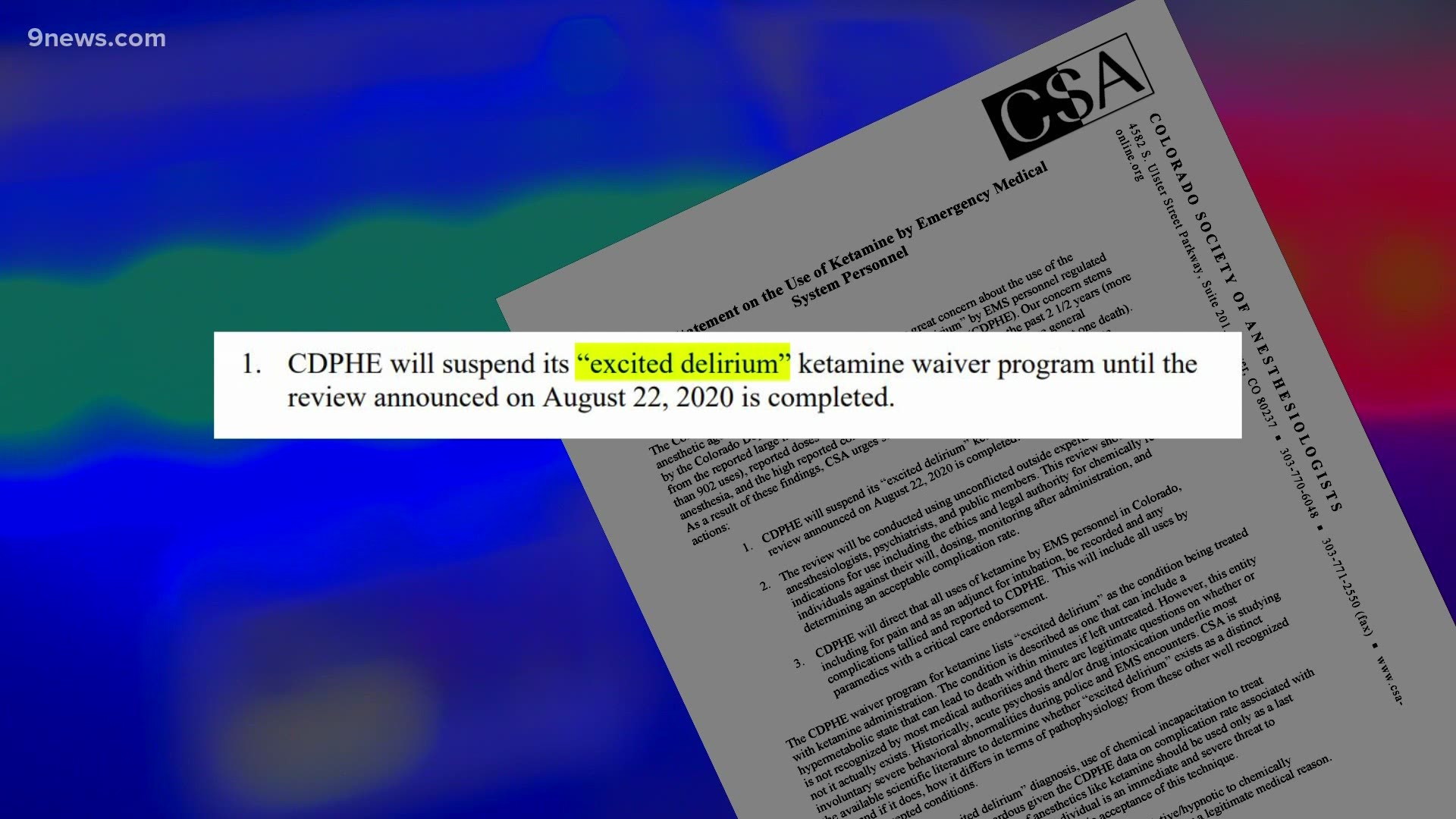DENVER, Colorado — The Colorado Society of Anesthesiologists (CSA) is calling on the state health department to discontinue allowing paramedics to sedate patients experiencing “excited delirium” with ketamine until the current review of the state’s program is completed.
The Colorado Department of Public Health and Environment (CDPHE) announced a review of its ketamine waiver program on Aug. 22 following nationwide criticism over the death of Elijah McClain in Aurora. After Aurora Police officers put McClain in a carotid hold, he was given 500 mg of ketamine based on an inaccurate estimation of his weight by paramedics. The 23-year-old, who had not committed a crime, died days later, though the coroner could not pinpoint a specific cause of death.
Another Elijah, Elijah McKnight, has received attention too after body camera footage surfaced of an encounter he had with Arapahoe County deputies. After a struggle, police brought McKnight, who was intoxicated, to the ground and paramedics ended up giving him a 750 mg dose. He was intubated and hospitalized for three days.
“What caught our attention was the size of the ketamine dose used in those events. That's a very large dose. We were concerned that that was larger than what we actually use for general anesthesia in the operating room,” said Dr. Randall Clark with CSA.
In Colorado, CDPHE allows agencies with a waiver to use the sedative when a patient is experiencing “excited delirium,” as has been claimed by first responders in the McClain and McKnight cases. But Dr. Clark says there’s no test to prove someone has this controversial syndrome.
“It is a diagnosis of exclusion, you rule out drug toxicity or other problems. And if you have no other explanation, then you fall back on "excited delirium" in the scientific literature. It is not that well described,” said Clark adding that the American Society of Anesthesiologists will soon join the American College of Emergency Physicians to “revisit their 2009 white paper” on the topic.
The state has kept track of how many times ketamine has been used by EMS. Data from CDPHE shows paramedics have used ketamine 902 times in the last three years for "excited delirium" or what they refer to as extreme or profound agitation. Of those patients, 16% experienced complications. CSA, which has been in regular contact with the department, said if you look at just 2019, 24% of patients had complications.
The number of agencies in Colorado applying for a ketamine waiver continues to grow. Clark stresses that the drug has a place in the field, especially when addressing pain, but that the negatives need to be under a microscope.
“We have some appreciation for the difficulties they face. But when looking at the complication rate reported for these uses, and this is a program that's relatively new, only been in place about seven years, we think greater scrutiny is required.”
CDPHE has not responded to a request for a response to CSA’s statement. The current review will take at least an additional nine weeks.
CDPHE did not respond to our request for comment. Their review will last at least another nine weeks. CSA is also asking that CDPHE bring in outside experts for that report and have paramedics more thoroughly record complications associated with ketamine use.
SUGGESTED VIDEOS: Elijah McClain case

